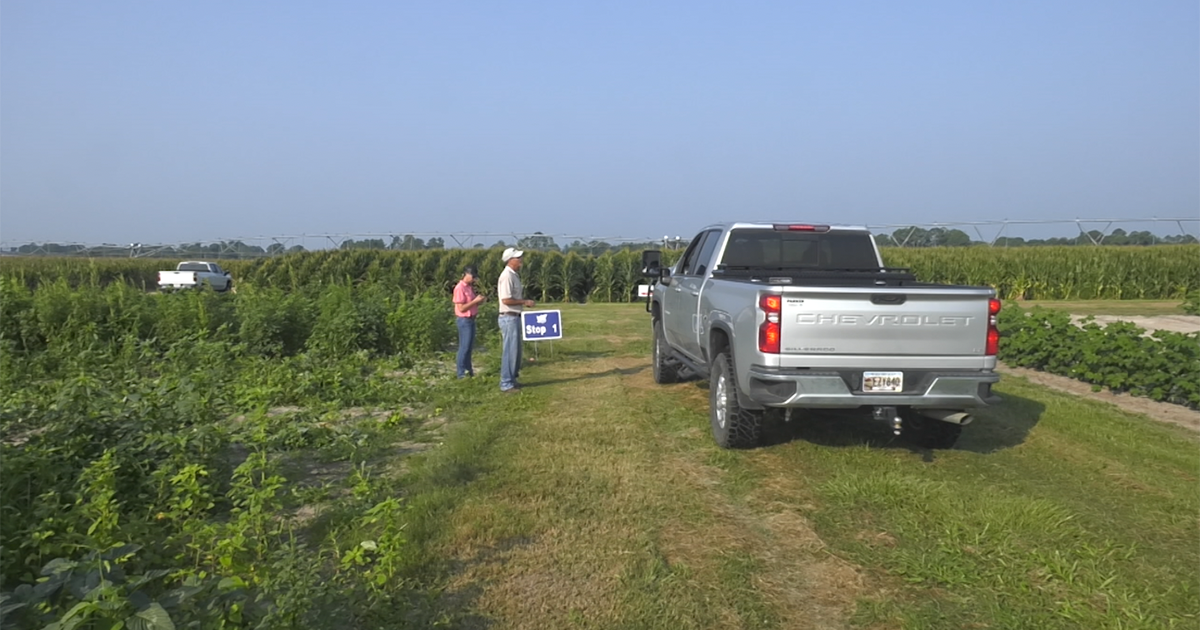Moultrie, GA
To no one’s surprise, there was plenty to see down in Moultrie at this year’s Sunbelt Ag Expo Field Day. Between the crops, presentations, and networking, it’s an event that producers and their operations can really benefit from.
“It’s just a great opportunity for the farmers to come in and see the latest technology, go ahead and start thinking about planting decisions and crop rotations for twenty four and twenty five. It’s just a great time to come out, see the latest technology, gather information to see how it might fit in their operation and enhance their economic and environmental sustainability,” says Chip Blalock, Sunbelt Ag Expo Executive Director.
While there, growers got to hear from University of Georgia Extension Specialists who provided them crop updates and management information, one of which was Extension Weed Scientist, Stanley Culpepper, who updated growers on the importance of weed management strategies especially when dealing with a year like this one.
“Weed control has certainly been a challenge. If you remember we were a little bit cool, we were a lot wet, early. Right now, we’re doing the opposite; we’re going to be hot and dry,” says Stanley Culpepper, Weed Scientist with UGA Extension. “We tried our best to be timely, mother nature threw a little wrench in there, but those residuals bought us time to get in there with the really good technologies, whether we had a Liberty based system, a dicamba based system, a 2-4D based system; those technologies allow us a lot of flexibility and are so important to our growers, and a year like this year really, really pointed out how important having these tools is. So, for our growers, I’ll remind them; resistance management, you’ve got to protect these tools. If you make bad decisions, three to four years later, you’ll lose these tools and guess what? We’re not going to have new tools. The regulatory challenges we have right now are unprecedented. That toolbox is going to be challenged like never before, so implement a good system regardless of the year, make timely applications when you can.”
Producers also got the chance to hear from Extension Peanut Agronomist, Scott Monfort, who updated growers on this season’s peanut crop, which he says is behind schedule thanks to the cold Spring we had.
“Most of our peanuts were planted in between May 12-25 or so. That did put us a little bit behind. The peanuts came out of the ground a little slower, we had some vigor issues, so things just were not as pretty as they normally would be and then we got into the rainy period there at the end of May going into June and that caused some problems with just trying to get into the fields and stay timely with weed control and some fungicides and some various things that we needed to do,” says Monfort.
However, Monfort says the crop is slowly catching up now that the weather has turned hotter and drier but says there’s one issue he’s worried about again this year and that’s Tomato Spotted Wilt Virus.
“One particular problem that we were very worried about with this early planted crop was tomato spotted wilt virus,” says Monfort. “The virus itself did not show up very much two to three, four weeks ago. The crop wasn’t moving, wasn’t growing, it was kind of hard to see, but now that everything’s starting to grow, we’re finding that the virus was just as bad, maybe not quite as bad as last year, but it’s out there on this early planted crop and I expect the June planted crop because it’s a cycle. The risk gets lower in May, gets a little bit more intense in June, so I expect we’ll see some more as the season goes on.”
By: John Holcomb

